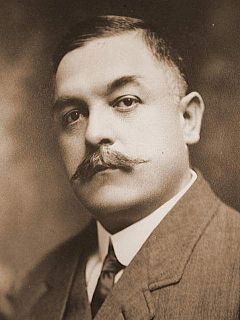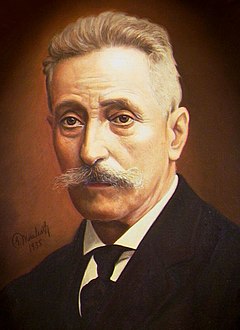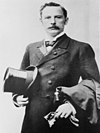Tobías Zúñiga Castro was a Costa Rican politician. He served as a diplomat and was Secretary of State. He was a member of the People's Party.
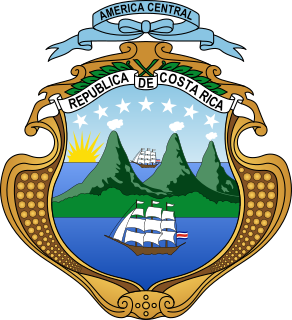
General elections were held in Costa Rica on 1 April 1917. Federico Tinoco Granados had seized power in a military coup in January and was the only candidate in the presidential election. The elections were considered to be fraudulent and although former president Rafael Yglesias Castro received 249 votes in Alajuela, they were recorded as invalid ballots. Voter turnout was reported to be 69.2% in the presidential election and 67.6% in the parliamentary election.

General elections were held in Costa Rica on 7 December 1919. Julio Acosta García of the Constitutional Party won the presidential election, whilst the party also won the parliamentary election, in which they received 74.9% of the vote. Voter turnout was 57.8% in the presidential election and 42.1% in the parliamentary election.

General elections were held in Costa Rica on 2 December 1923. Ricardo Jiménez Oreamuno of the Republican Party won the presidential election, whilst the party also won the parliamentary election, in which they received 51.5% of the vote. Voter turnout was 70.5% in the presidential election and 83.9% in the parliamentary election.

General elections were held in Costa Rica on 12 February 1928. Cleto González Víquez of the National Union won the presidential election, whilst the party also won the parliamentary election, in which they received 53.3% of the vote. Voter turnout was 62.5% in the presidential election and 72.85% in the parliamentary election.

General elections were held in Costa Rica on 14 February 1932. Ricardo Jiménez Oreamuno of the Independent National Republican Party won the presidential election, whilst the party also won the parliamentary election, in which they received 46.7% of the vote. Voter turnout was 64.2%.

General elections were held in Costa Rica on 9 February 1936. León Cortés Castro of the Independent National Republican Party won the presidential election, whilst the party also won the parliamentary election, in which they received 59.4% of the vote. Voter turnout was 68.8% in the presidential election and 68.9% in the parliamentary election.
Costa Rica became a member of the United Nations on February 11, 1945.

The National Republican Party was a political party in Costa Rica.

José Maria Soto Alfaro (1860-1931) was a surgeon and Costa Rican politician, brother of President Bernardo Soto Alfaro. Soto studied medicine at the University of Paris in 1885, practiced the first gastrostomy, thyroidectomy and cesarean section in Costa Rica. He practiced medicine at the Faculty of Medicine of Costa Rica and at the San Juan de Dios Hospital. sometimes deputy in the Constitutional Congress. Convinced tinoquista, he strongly supported the brief regime of two years imposed by the brothers Tinoco after the coup d'etat of 1917 and founded the "January 27 Club" in commemoration of the date of overthrow of Alfredo González Flores. After Federico Tinoco was overthrown and his brother José Joaquín was assassinated, Soto accepted to run as a presidential candidate against the opposition leader Don Julio Acosta García, although the nomination was merely symbolic since Acosta had the triumph assured it was important to avoid a single candidate election, something that it is recognized as a patriotic service.
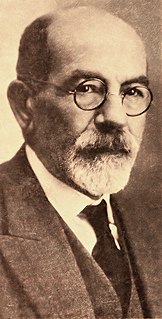
The 1906 Costa Rican general election was held during the presidency of Ascensión Esquivel Ibarra. Ibarra openly supported candidate Cleto González Víquez. Other candidates were former president Bernardo Soto Alfaro, former State and Police Secretary Tobías Zúñiga Castro, the also former State Secretary Máximo Fernández Alvarado and former justice and Foreign Secretary Ezequiel Gutiérrez Iglesias. Difference were more personal than ideological as all candidates except Gutiérrez were liberals, and the election had a strong "anti-cletista" component. This "anti-cletismo" was what united the opposition and talks about a common joint front occurred but it was not applied. Gutiérrez was candidate of the conservative "Democratic Union", the party that emerged from the now outlawed Catholic Union.
The 1910 Costa Rican general election was held during the presidency of Cleto González Víquez. This was the last time that indirect elections were held in Costa Rica as for the next one in 1913 the direct vote was implemented. Liberal lawyer Ricardo Jiménez Oreamuno was elected for the first time. Jiménez was very popular in part because of his struggles against the United Fruit Company's abusive operations in the country. Jiménez was proclaimed candidate in the Teatro Variedades during the first Republican National Convention, Costa Rica's first primary election. Jiménez won easily over the other candidate, former president Rafael Yglesias who ruled an authoritarian, though short-lived, regime.
The Civil Party of Costa Rica was a political grouping that arose in 1893 in sight of the 1894 Costa Rican general election. Initially it acted without a candidate, but later it postulated Navy Secretary of War Rafael Yglesias Castro, who won the electoral vote in the second level election. Subsequently, the party participated in the mid-term election of 1896 for the renewal of half of the Congress, and postulated the re-election of Rafael Yglesias Castro for the 1898 election, in which the opposition refrained from participating. In the 1902 presidential elections it did not nominates any candidate and endorses Ascensión Esquivel Ibarra.
The Partido Agrícola was a political party of Costa Rica. It was founded for the 1923 general election and ran as candidate the wealthy aristocrat and lawyer Alberto Echandi Montero, father of the future president Mario Echandi Jiménez.
The National Party of Costa Rica was a political party formed by liberal groups for the mid-term legislative elections of 1892, which allied with the supporters of the government of President José Rodríguez Zeledón to defeat the Catholic Union; however, a few months later the governor dissolved the Congress. It was an eminently personalist group, with a diffuse liberal ideology. Si bien Yglesias había pedido que se votara por Echandi pues adujo encontrarse cansado.

Liberalism in Costa Rica is a political philosophy with a long and complex history. Liberals were the hegemonic political group for most of Costa Rica’s history specially during the periods of the Free State and the First Republic, however, as the liberal model exhausted itself and new more left-wing reformist movements clashed during the Costa Rican Civil War liberalism was relegated to a secondary role after the Second Costa Rican Republic with the development of Costa Rica’s Welfare State and its two-party system controlled by social-democratic and Christian democratic parties.
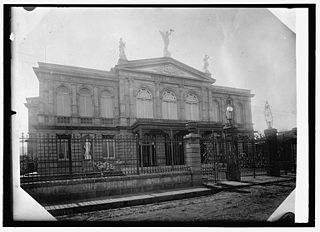
It is known as the Liberal State the historical period in Costa Rica that occurred approximately between 1870 and 1940. It responded to the hegemonic dominion in the political, ideological and economic aspects of liberal philosophy. It is considered a period of transcendental importance in Costa Rican history, as it's when the consolidation of the National State and its institutions finally takes place.

The history of the Costa Rican legislature is long and starts from even before its formal independence from the Spanish Empire. Costa Rica is one of the world's oldest democracies, thus, its parliamentary history dates back several centuries.

The Reform State or Reformist State is a period in Costa Rican history characterized by the change in political and economic paradigm switching from the uncontrolled capitalism and laissez faire of the Liberal State into a more economically progressive Welfare State. The period ranges from approximately 1940 starting with the presidency of social reformer Rafael Angel Calderón Guardia and ends around the 1980s with the first neoliberal and Washington Consensus reforms that begun after the government of Luis Alberto Monge.


